The rise and rise of Muslim fighters in the UFC
Their success in MMA has shown that athletes can excel at the highest levels of the sport while staying true to their faith and values

Zaid Hassan
Producer
Zaid Hassan, a seasoned sports journalist, led Cricket Pakistan as editor for four years, shaping its coverage with insightful analysis. Now a producer at Nukta, he expands into broader storytelling while remaining a key voice in Pakistan’s sports media.
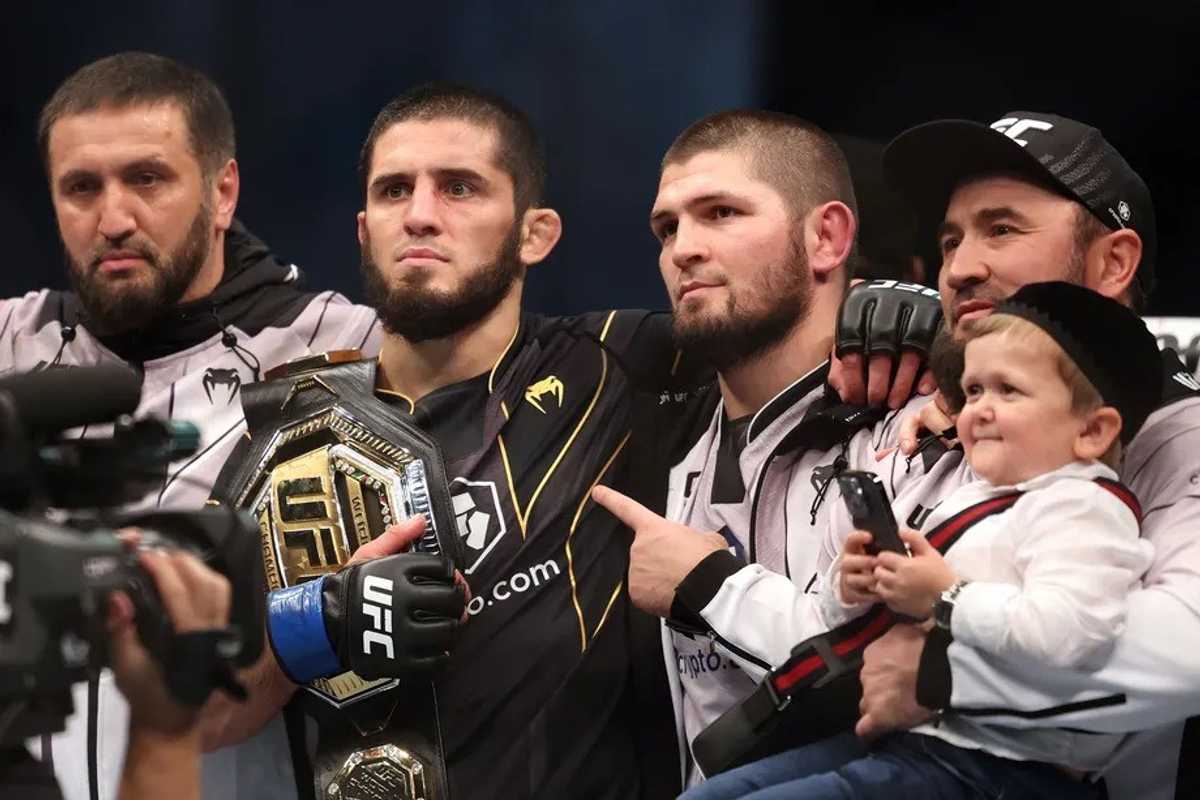
Islam Makhachev celebrates with Khabib Nurmagomedov after beating Charles Oliveira in UFC 280 in 2022.
AFP
The world of Mixed Martial Arts (MMA) has seen a significant transformation in recent years, with Muslim fighters becoming leading figures in the sport.
Their success, particularly in the Ultimate Fighting Championship (UFC), the top MMA organization globally, has reshaped the sport, breaking stereotypes and inspiring a new generation of athletes.
The Dagestani Phenomenon
A prominent example of this dominance comes from Dagestan, a Russian republic known for producing world-class wrestlers and fighters. Wrestling is deeply rooted in Dagestani culture and serves as a key sport for the youth. Dagestani athletes undergo intense physical training and grow up in the harsh conditions of the Caucasus Mountains, which foster their resilience, tenacity, and the elite wrestling skills that have become their signature in the UFC.
Khabib "The Eagle" Nurmagomedov, a native of Dagestan, epitomized the dominance of Muslim fighters in the UFC. His undefeated career, culminating in a 29-0 record, showcased his exceptional grappling skills and determination. Khabib's victory over Al Iaquinta in April 2018 made him the first Muslim UFC champion, securing his place in MMA history.
Khabib's influence extended beyond his own career. His retirement in 2020, following the passing of his father and coach, Abdulmanap Nurmagomedov, ended an era but left a lasting legacy. This legacy continues through fighters like Islam Makhachev, the reigning UFC Lightweight champion.
Makhachev, also from Dagestan, trained alongside Khabib and shares a similar fighting style. Their paths were closely linked from childhood, as they lived near each other and trained under the same coach. Abdulmanap always believed in Makhachev’s potential, seeing him as Khabib's successor. He often told his son, "When you leave, Islam will arrive."
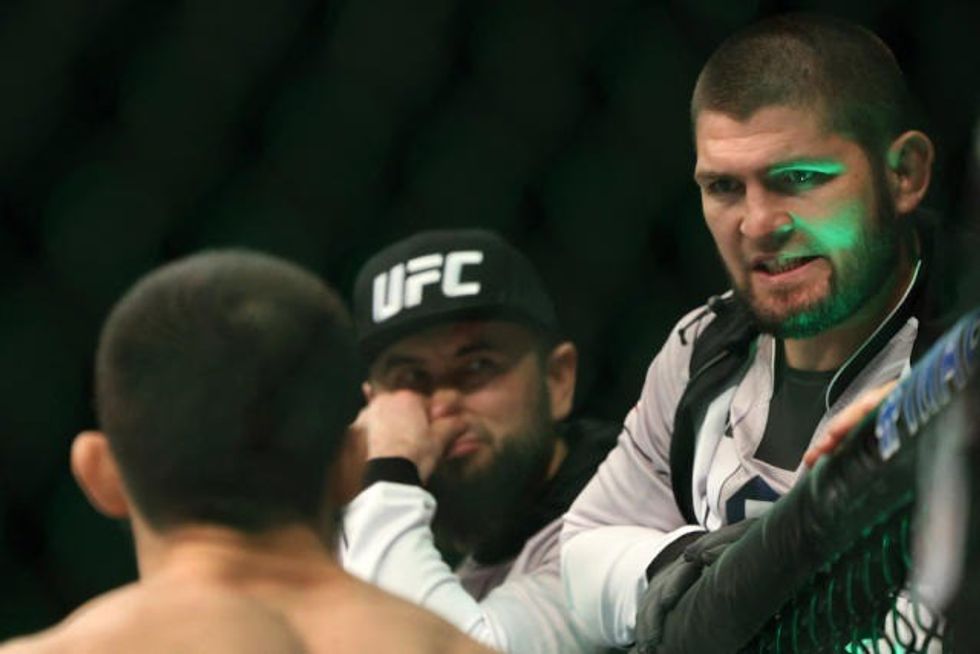
Makhachev's toughness and endurance come from his upbringing in Dagestan. Like many fighters from the region, he developed his stamina and strength through laborious activities such as carrying stones up mountains. Makhachev has often spoken about the challenging conditions of his childhood, which shaped him into a fighter.
"Hard work is in our DNA," Makhachev said. "Running up mountains several times a day and training with stones—these tough conditions make real men."
Belal Muhammad, the current Welterweight champion and the first MMA fighter of Palestinian descent to win a UFC title, shared on UFC commentator Joe Rogan's podcast in 2023 that his experience training with Dagestani fighters revealed why they excel in the sport. He described his first time grappling with Khabib, Makhachev, and their group as a cultural shock due to the intensity of their training.
“If you never train with the guys from Dagestan, you don’t know what it feels like. It’s not, it’s not regular Jiu Jitsu, like quicksand…I’m really good at flow rolling and I’m training with them in my last camp and I’m like ‘I cannot move with these guys.’ None of them,” Belal said on the podcast.
The Role of Faith
For Muslim fighters, their faith plays an essential role both inside and outside the octagon. Islam instills values like discipline, self-control, and resilience, which are critical for success in a demanding sport like MMA. Many fighters attribute their achievements to their religious principles, which are reflected in their training, lifestyle, and approach to fighting.
During the same podcast, Joe Rogan and Belal discussed the role of Islam in shaping a fighter's career. Rogan said that being deeply religious can give fighters an advantage, as it removes distractions and gives them a clear sense of purpose.
“I think for a fighter having a religion [Islam] like that, it does have an advantage,” Rogan said.
Belal then elaborated on how his faith shaped his mentality from childhood.
"Islam builds you up from a kid, like, 'I know I have to do this, this and this every single day. I'm not allowed to eat this, I'm not allowed to eat pork, I'm not allowed to gamble, not allowed to drink or anything like that.' So, it puts you in [that place] and a lot of those things are worse for you as a fighter anyway. You shouldn't be drinking, you shouldn't be going to clubs. That's why you're starting to see the Muslims be the best fighters out there," Belal said on the podcast.
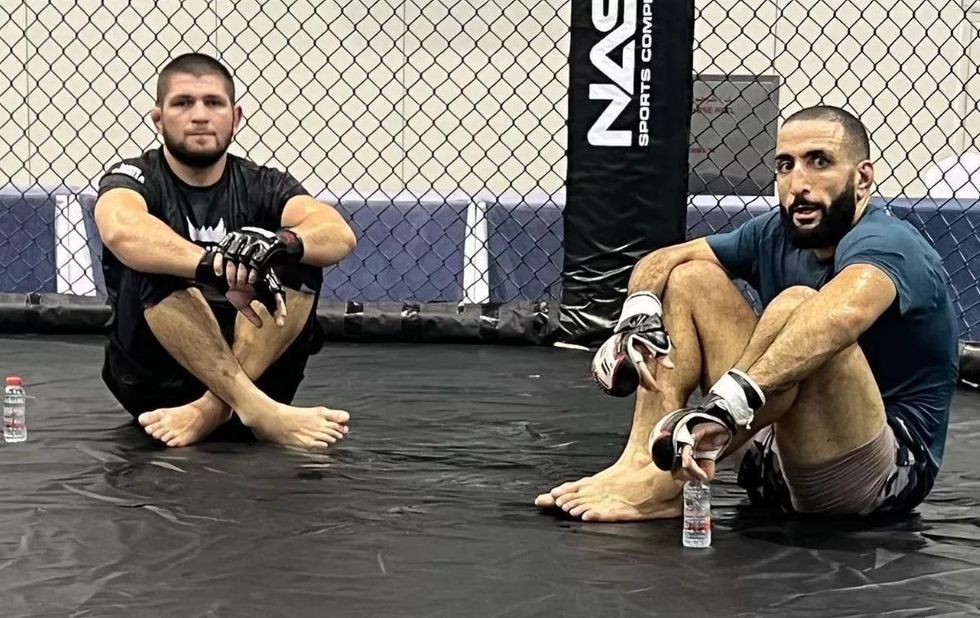
A key aspect of the spiritual lives of Muslim fighters is their observance of Ramadan, the holy month of fasting. During Ramadan, Muslims abstain from food and drink from sunrise to sunset, a practice that requires incredible discipline.
Khabib, a devout Muslim, took Ramadan seriously and avoided scheduling fights during or near the holy month. He used this time to strengthen his relationship with God and focus on his spiritual well-being.
Belal Muhammad, on the other hand, does not mind training during Ramadan. He has spoken about how fasting improves his mental and physical conditioning, making him a better fighter.
"I feel like a better version of myself during Ramadan," Belal told MMA Junkie Radio. "I’m at peace, and when I’m in that state of mind, I perform at my best. Even during the Gilbert Burns fight, I fasted in the final week. The mental strength I gain during Ramadan stays with me in the cage."
For these athletes, the mental toughness and focus that their faith instills helps them stay calm under pressure, avoid distractions, and stay committed to their goals.
The challenges faced by Muslim Fighters
Despite their success, Muslim fighters face unique challenges in the world of MMA, particularly in Western countries where Islam is often misunderstood or stigmatized. These athletes must not only contend with the physical and mental demands of the sport but also navigate cultural and political barriers.
Khabib's career was marked by several instances where his faith became a point of contention. The most notable example occurred during his high-profile bout against Conor McGregor at the UFC 229 in 2018. The lead-up to the fight was filled with animosity, with McGregor attempting to provoke Khabib through personal and religious insults.
Khabib typically did not react to direct insults but spoke up when his religion was targeted. During a promotional press conference, a reporter greeted the fighters by saying “Khabib, as-salaam alaikum,” a common Muslim greeting, and “Conor, congrats on Proper Twelve,” referencing McGregor’s whiskey brand. Khabib replied, “You cannot say salaam alaikum and congrats about whiskey.”
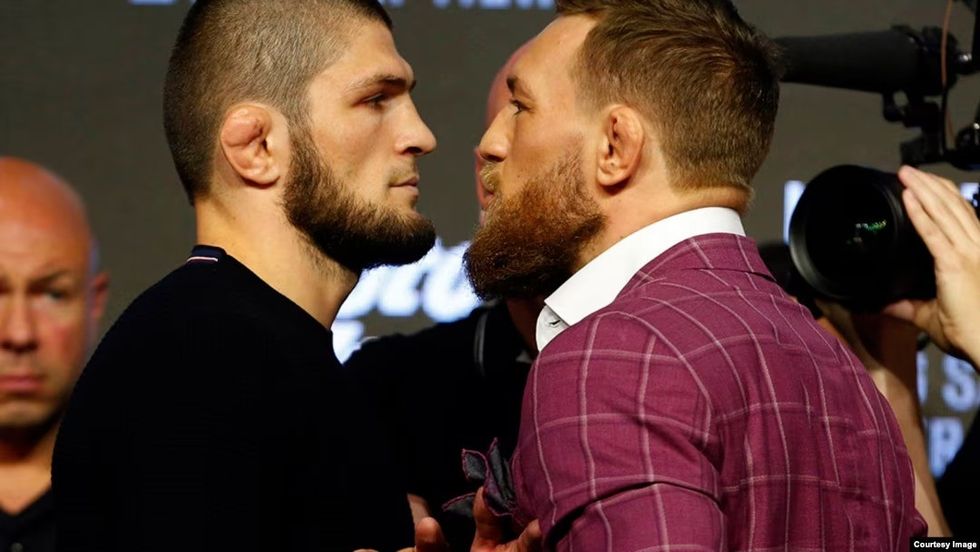
In 2016, EA Sports apologized to Khabib and other Muslim fighters for making the sign of the cross the default gesture in UFC 2, following Khabib's advocacy for respecting religious beliefs.
Role Models
Muslim fighters like Khabib and Makhachev have become ambassadors for their religion and their communities breaking down prejudices and fostering cross-cultural understanding. Their success in MMA has shown that athletes can excel at the highest levels of the sport while staying true to their faith and values.
These fighters are not just winning championships; they are serving as role models for young Muslims around the world. As MMA continues to expand globally, the influence of Muslim fighters is set to grow even further.
The UFC recognizes the growing popularity of these fighters and regularly schedules their matches at the Etihad Arena in Abu Dhabi, where they enjoy a large fan base.
With Russian fighters like Umar Nurmagomedov and Magomed Ankalaev on the verge of competing for UFC titles in the Bantamweight and Light Heavyweight divisions, it is not beyond the realm of possibility that Muslim fighters will dominate most divisions in the organization in the near future.





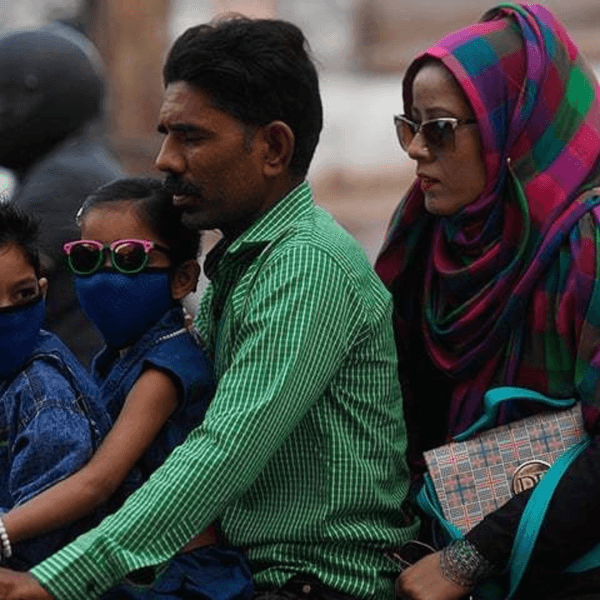

Comments
See what people are discussing